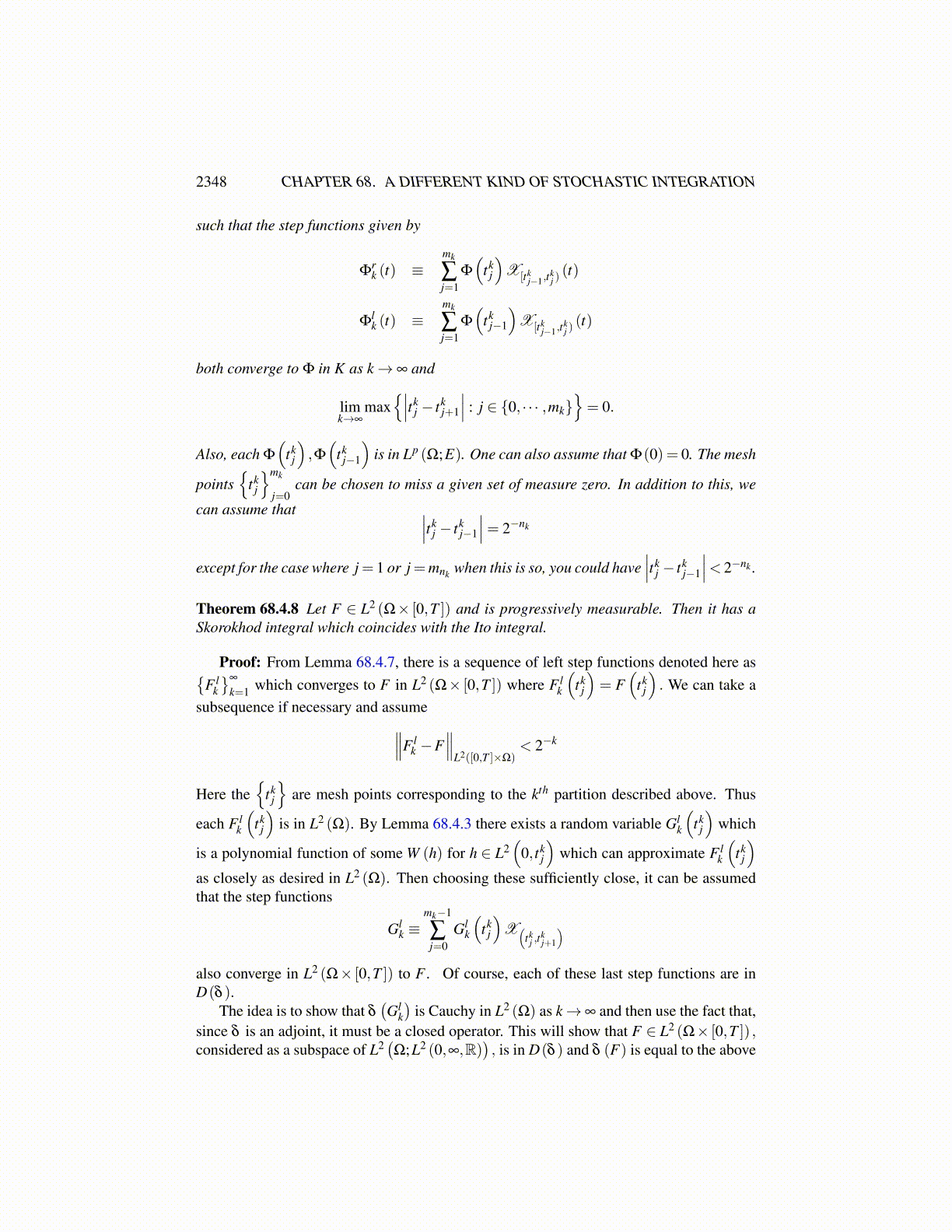
2348 CHAPTER 68. A DIFFERENT KIND OF STOCHASTIC INTEGRATION
constant term is 0 and consider
E⟨DF, f X[0,t]
⟩≡ E
⟨∑k
Dk (F)hk, f X[0,t]
⟩
Since hk ∈ H = L2 (0,∞;U) , so is hkX[0,t]. Thus the above reduces to
= ∑k
E⟨Dk (F)hk, f X[0,t]
⟩= ∑
kE(∫
∞
0Dk (F (W (h1) , · · ·W (hn)))hkX[0,t] f dt
)Since F is just a polynomial and W is linear and X q
[0,t] = X[0,t], this equals
∑k
E(∫
∞
0Dk(F(W(X[0,t]h1
), · · ·W
(X[0,t]hn
)))hkX[0,t] f dt
)Let Ft = F
(W(X[0,t]h1
), · · ·W
(X[0,t]hn
))and so the above is nothing more than
E⟨DF, f X[0,t]
⟩= E ⟨DFt , f ⟩
and since f ∈ D(δ ) ,∣∣E ⟨DF, f X[0,t]⟩∣∣= |E ⟨DFt , f ⟩| ≤C ( f )∥Ft∥L2(Ω)
Also
∥Ft∥2L2(Ω) =
∫Ω
F(W(X[0,t]h1
), · · ·W
(X[0,t]hn
))2 dP
=∫
Ω
X[0,t]F (W (h1) , · · ·W (hn))2 dP
≤∫
Ω
F (W (h1) , · · ·W (hn))2 dP
Thus for such F which have zero constant term,∣∣E ⟨DF, f X[0,t]⟩∣∣≤C∥F∥L2(Ω)
Now what if F is a constant a? In this case, DF = Da = 0∣∣E ⟨Da, f X[0,t]⟩∣∣= 0≤ ∥a∥L2(Ω)
It follows that X[0,t] f ∈ D(δ ) whenever f is.Note how it was essential in this argument to have F be a polynomial or perhaps more
generally an analytic function. However, in the definition of the Skorokhod integral, onemust test with functions F which are smooth and have polynomial growth. In particular,this would include functions which are infinitely differentiable with compact support, noneof which have valid power series.